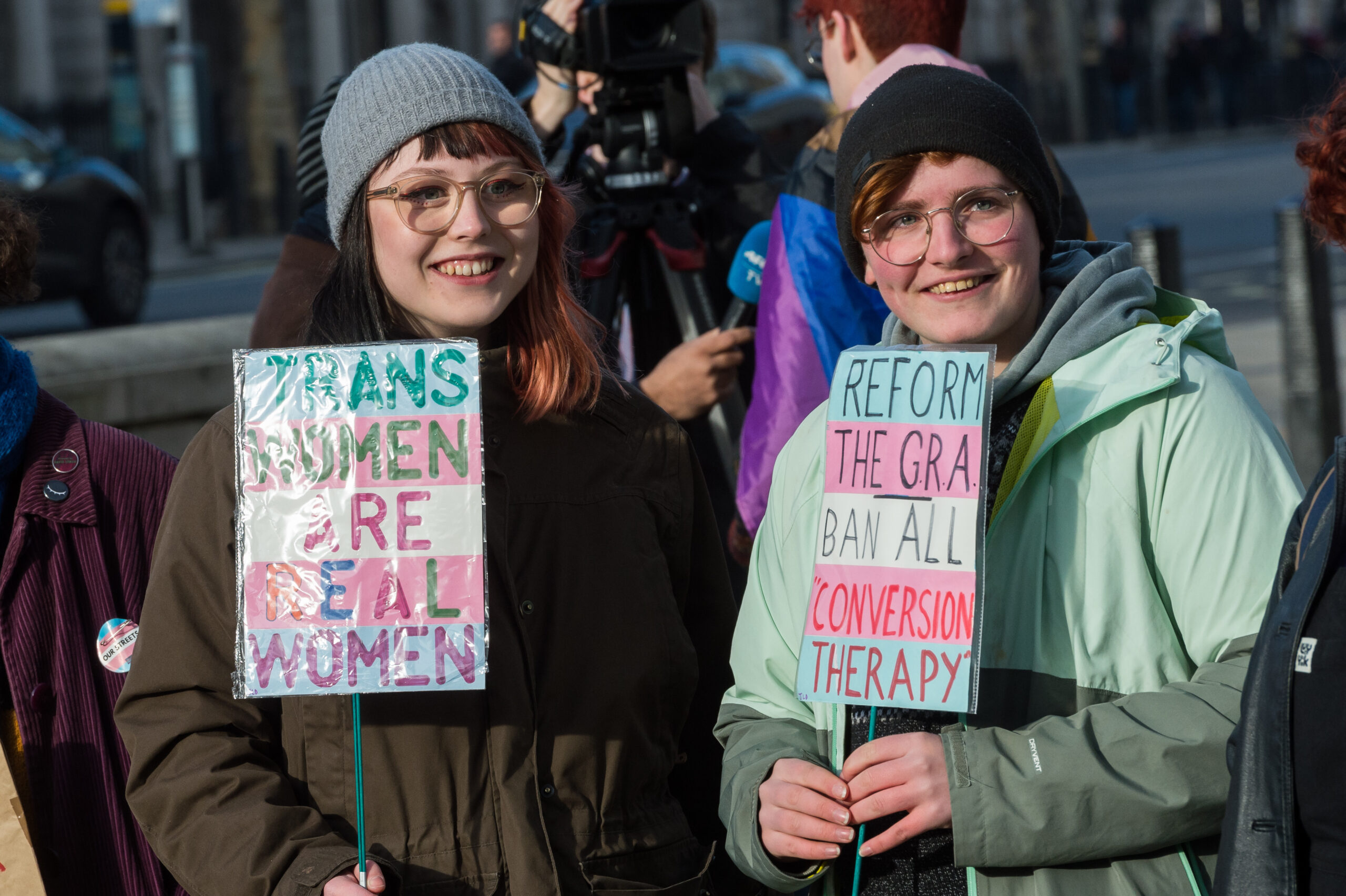
Content note: suicide, self-harm.
In response to Scotland passing a law (subsequently blocked by Westminster) that allowed 16-year-olds to change their legal gender, the mainstream media has began furiously writing articles attacking the law. The Daily Telegraph published a piece claiming that the law would allow teenagers to “have irreversible surgeries”, while the Daily Mail claimed that trans kids’ use of puberty blockers was “questionable”. Labour leader Keir Starmer said he too has “concerns” about 16-year-olds changing their legal gender – none of which, of course, are based on evidence. Instead, the data we have shows that affirming the gender of transgender children and teenagers leads to happier, healthier trans adults.
Critics of gender-affirming care frequently cite a small group of people who de-transition (choose to identify with their assigned gender). Their argument, as outlined by an article in the Spectator, is that young people “have been left with physical and mental scars for a decision that adults should never have allowed them to make”. But the reality is that only a tiny fraction of trans teens regret embracing their gender identity – the vast majority continue to identify that way into adulthood.
One 2021 study of American trans people found that of the 1,907 respondents who began identifying as trans when they were teenagers, only 193 (10%) had since de-transitioned. The same study found that young respondents were more likely to de-transition due to parental pressure or stigma.
While there is no evidence that gender-affirming care hurts young people, there is ample evidence that denying it to them does. Trans teens have high rates of mental illness: according to one US study, trans youth are 2.5 times more likely to be depressed and 2.8 times more likely to attempt suicide than their cisgender peers. The statistics are even worse for those subjected to long wait times for UK gender healthcare: a 2021 study found that trans teenagers on the waiting list for gender-affirming healthcare were 5.5 times more likely to commit suicide.
Transitioning helps, however. When trans teens are given access to transition healthcare, the evidence shows that their mental health markedly improves. This reflects broader evidence about transition. In 2018, Cornell University examined 55 studies of transgender healthcare over a 20-year timeframe; 51 of them concluded that gender transition improves the overall wellbeing of trans people.
This is also specifically true of trans teens: an American study of 104 young trans people published in 2022 found that those who received gender-affirming treatment such as puberty blockers were 60% less likely to be depressed and 73% less likely to be suicidal than those who didn’t.
An earlier US study in 2020, meanwhile, specifically found that trans people who had not received puberty blockers as teenagers despite wanting them were 1.5 times more likely to be mentally distressed and 1.2 times more likely to have ever felt suicidal than those who had received them.
Objections to the Scottish law hinge on vague “concerns” and evidence-free assertions that 16-year-olds are too young to change their legal gender. But these concerns are unfounded. The evidence shows that trans teenagers face serious mental health difficulties that can be and are alleviated by healthcare that recognises and affirms their gender identity.
The Scottish law is not radical – rather, it acknowledges that many teens are transgender, and few of them ever go on to regret transitioning.
Ell Folan is the founder of Stats for Lefties.


